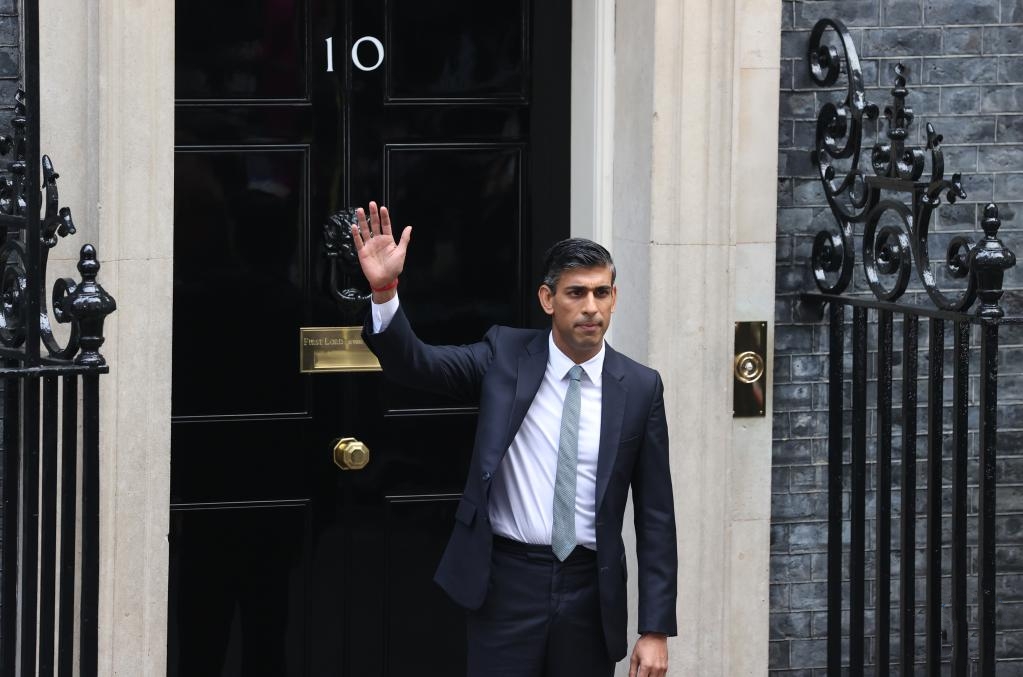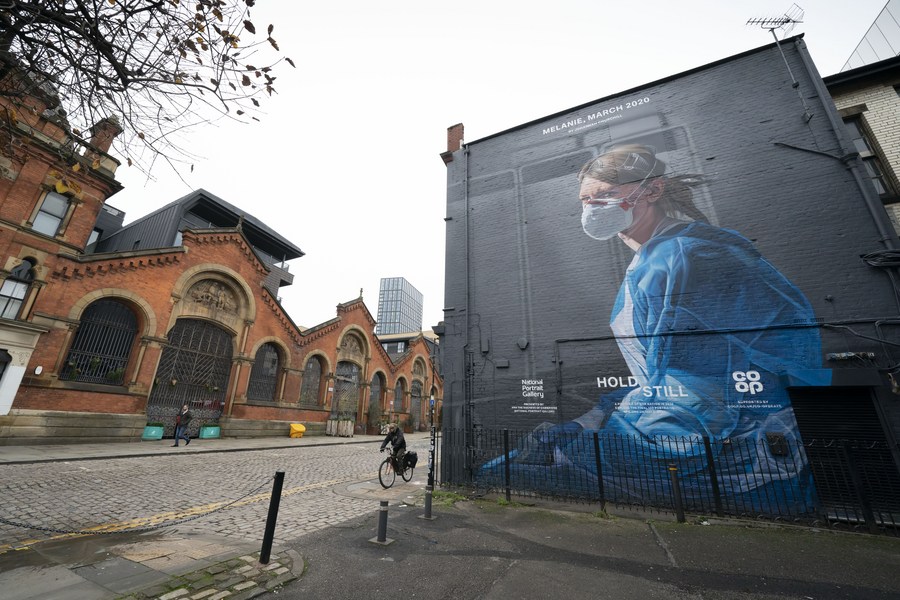
By Jerry Grey
Rishi Sunak could be the right man for the job but if he is, then why did we have 49 days of Liz Truss and then a short period of behind-the-scenes negotiations to get him into Number 10?
According to a prominent UK Conservative donor, Lord Rami Ranger, it was because he’s of Indian origin; he was the best man for the job and should have been elected prime minister (PM) before Liz Truss. Much of the parliamentary party agreed, and he went to the vote as the higher ranking of the two.
The Tory Party, known more formally as the Conservative Party, might have lived up to their name and agreed with Lord Ranger, but they might be just a little too conservative to allow a “gentleman from the colonies” to take the position. Most media outlets would steer away from this controversial take, but according to one British professor, the demographic of the Party is fundamentally “older, well-off, white southerners” who would, as one, obviously white, young, self-declared, Tory Party member who called a London radio station, prefer a “British” Leader.
According to British media, there are several reasons why Sunak lost to Truss at the beginning: He is rich and people do not like that; he wears expensive clothes to poor areas and that upsets people; his wife is just a shade short of being a billionaire and has had some “issues,” albeit completely legal, with the tax office, which would be a big PR problem for a man who effectively controls the collection of taxes for the country, as he did when he was Chancellor of the Exchequer (the finance minister).
Moreover, he is alleged to have admitted diverting funds away from working class areas to richer areas. Others say it is because he has business interests and property in the US and held a green card while he was a working MP. He only surrendered it a year after becoming Chancellor when it became clear that his wife was avoiding tax by being a non-domiciled US resident and paying a £30,000 fee which would have been a lot lower than her tax on earnings.
Despite most political opponents calling the entire debacle of the Johnson-Truss-Sunak transition a reasonable cause for a general election, some were at least satisfied that a person with a reasonable demeanour, a credible background, as well as qualifications and experience was entering the role.

Britain's new Prime Minister Rishi Sunak waves to the crowd after delivering his first address to the nation outside 10 Downing Street in London, Britain, October 25, 2022. (Photo/Xinhua)
Sunak now faces several problems but the biggest and most immediate is going to be more fully explained on November 17th by Jeremy Hunt, the Chancellor of the Exchequer. There is a “black-hole” in the budget, and we’ll know for certain how wide and deep it is when Hunt makes his announcement. This will undoubtedly create massive calls for a general election from opposition and media because it has been the Conservative Party, through Cameron, May, Johnson, Truss and now Sunak, who have held leadership and can therefore, quite rightly, be held responsible for any shortcomings in the current budget.
Those problems, especially as they relate to finance, have been compounded by the fact that the new PM was Chief Secretary to the Treasury for a brief period before becoming Chancellor of the Exchequer from February 2020 to July 2022. In other words, if anyone knows how and why the UK has such a difficult financial position, it would be Sunak, who, for the last 2.5 years, oversaw the department that has put those issues there.
Health and healthcare in the UK faces a severe crisis of confidence as well as shortfalls in funding, long waits for basic treatment and a massive staffing problem, and it’s known that Sunak has explored options to outsource these issues to US insurers. Any leader who can fix these problems would generate an enormous amount of gratitude and support from a long-suffering public, but fixing the problems by introducing the same costs and concerns as exist in the US would almost certainly engender the opposite.
There are grave concerns in the UK about cost of living, employment and immigration. There is a labour shortage in the UK as workers no longer come from the EU. Wages have risen but not as high as inflation. The only redeeming factor about UK’s horrific inflation rate, currently hovering around 10%, is that it’s not as high as most other European countries.

A purchaser weighs food in a supermarket in London, Britain, May 5, 2022. (Photo/Xinhua)
There is a lot of work for the new PM to do, especially with interest rates at a 14-year high and predicted to triple in coming months. What’s more, according to the Office of National Statistics, the UK GDP contracted 0.3% in the three months to August indicating a recession is looming.
Little is currently known about Sunak’s plans for the immediate or long-term future. His current pledges include the usual rhetoric about being tough on China, a common tread throughout all politics and media in the West these days and political suicide if confronted or questioned. He says he will fix the economy; he will improve the cost of living; and he will remove older, no-longer relevant EU rules which hamper trade; he will continue the goal of carbon neutrality by 2050; he will commit to 2% military spending, a NATO requirement which the UK, being NATO’s second largest contributor, has fallen behind.
The problem is that, despite all these fine pledges, he has not indicated yet how they will be achieved and no one knows how they will be paid for. The only thing we can be certain of is that there is a shortfall in the budget and not enough money to do everything.
So, there really are only two ways to pay for UK’s future: either spend less or earn more. Spending less means very unpopular decisions with less services, increased costs and almost certainly higher unemployment as public servants are laid off. Earning more means going cap in hand to an EU that no longer trusts the UK.
Both solutions will lead to the demise of any party foisting them upon a public that has been battered by events which have occurred since Brexit: Massive abuses of political power, decreases in income coupled with huge increases in outgoings, COVID-19 lockdowns and a pandemic management resulting in 180,000 deaths.

People pass by a recently painted mural of a nurse in Manchester, Britain, on November 5, 2020. (Photo/Xinhua)
In short, Rishi Sunak may have been the best candidate for the job, but the job was probably the worst opportunity to ever face any incoming prime minster. The tasks ahead are as close to insurmountable as possible to imagine. Every decision made in the next few weeks will meet with more opposition than support in the house as many senior Tory members publicly supported a return to Boris Johnson and not Rishi Sunak. Despite calls for unity, these opponents will likely oppose everything he does.
If Sunak can achieve stability and bring the UK back to former glory, he will go down in history not as the first Indian origin, Hindu PM but as the man who overcame all the odds. What’s more likely to happen though is that in the face of insurmountable national problems with polarised personal and political opposition coupled with the fact that he has a great deal of independent wealth, as well as an escape route into a career in international finance through his US interests, he may well decide that the job isn’t worth the trouble.
In that event, the UK may well need to deal with another outgoing PM in a relatively short period of time, and then, the only person who would want the position is a dishevelled, disgraced former leader who will most likely, in the absence of any other candidate, be given a second chance to lead his party into a general election.
Jerry Grey is a British media commentator who has residency in China’s Guangdong province and bicycled across several provinces including the Xinjiang Uygur Autonomous Region. He is a former London Metropolitan police officer with decades of experience in law enforcement and the security industry. The article reflects the author's opinions, and not necessarily the views of GDToday.
(If you want to contribute and have specific expertise, please contact us at newsguangdong@sina.com.)
This article has been edited to reflect the change of date of Jeremy Hunt's Budget announcement, which was advised after the article were published.
















